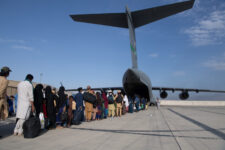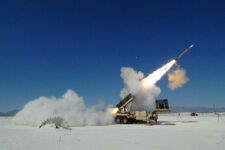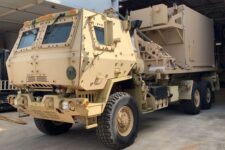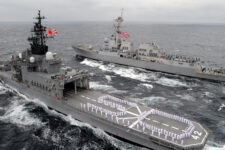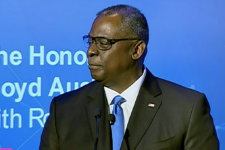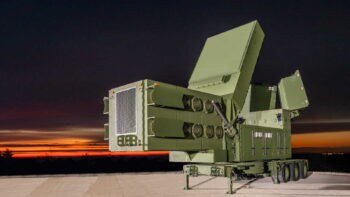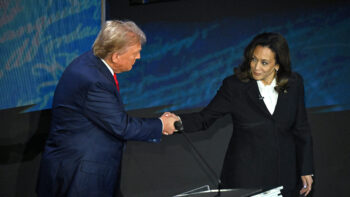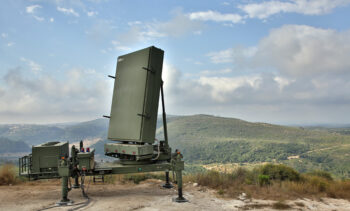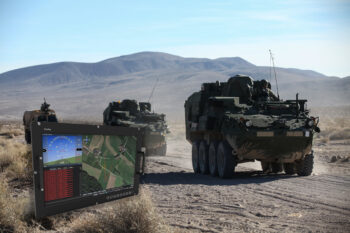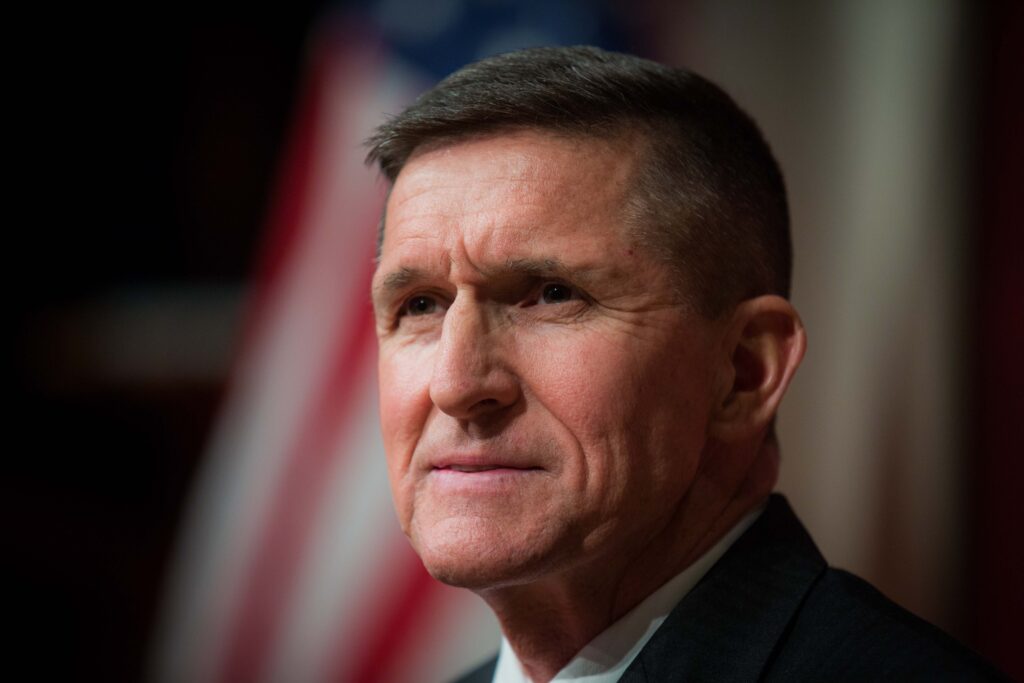
Lt. Gen. Michael Flynn
Who are Trump’s generals? Earlier this week, James Kitfield showed us the common crucible that shaped as a group and then profiled James Mattis, the prospective Secretary of Defense. Today, Kitfield tackles Trump’s most controversial general, intelligence officer turned political firebrand Michael Flynn.
“Know your enemy and know yourself, and you will not be defeated in 100 battles.” But what if you try to understand your enemy and he’s as firm a believer in his skewed moral universe as you are in yours?

A V-22 lands Marines in Helmand.
That’s the dilemma that Lt. Gen. Michael Flynn faced as director of intelligence for Joint Special Operations Command and the International Security Assistance Force in Afghanistan. Flynn spent countless hours interrogating senior commanders for Al Qaeda, the Taliban and Al Qaeda in Iraq, which would later morph into ISIS. He could understand their hatred of American soldiers, but Flynn was perplexed by the fact that the vast majority of their tens of thousands of victims were fellow Muslims.
During the course of those interrogations in both Iraq and Afghanistan, Flynn concluded that what united the terrorist warlords was a common ideology, specifically the extremist Salafi jihadist ideology that rejects any separation of church and state in favor of puritanical interpretation of Islamic Sharia law. These Sunni jihadists are intolerant of other religions or sects, and violent by the very nature of their cause of waging “holy war.”
“Over the course of all those interrogations, I concluded that ‘core Al Qaeda’ wasn’t actually comprised of human beings, but rather it was an ideology with a particular version of Islam at its center,” Flynn told me in September. In a way, the human beings who make up al Qaeda are just the hosts for the real threat: a nihilistic ideology with a fundamentalist, religious totalitarianism at its center.
“More than a religion, this ideology encompasses a political belief system, because its adherents want to rule things—whether it’s a village, a city, a region or an entire ‘caliphate,’” Flynn said. “And to achieve that goal, they are willing to use extreme violence. The religious nature of that threat makes it very hard for Americans to come to grips with.”
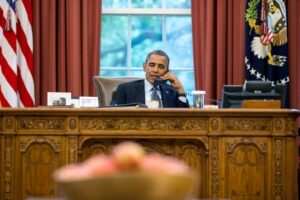 At the DIA, Flynn’s perception of the growing threat posed by Islamist extremists put him at odds with the triumphalist narrative coming out of the White House. With the death of Osama bin Laden and many of his top lieutenants in 2011, the Obama administration argued that Al Qaeda “core” was “decimated,” and the threat from terrorism rapidly diminishing. In 2012, the National Intelligence Council had even crafted a draft National Intelligence Estimate — a document supposed to represent the consensus view of the US intelligence community — which reportedly concluded that Al Qaeda was no longer a threat to the United States.
At the DIA, Flynn’s perception of the growing threat posed by Islamist extremists put him at odds with the triumphalist narrative coming out of the White House. With the death of Osama bin Laden and many of his top lieutenants in 2011, the Obama administration argued that Al Qaeda “core” was “decimated,” and the threat from terrorism rapidly diminishing. In 2012, the National Intelligence Council had even crafted a draft National Intelligence Estimate — a document supposed to represent the consensus view of the US intelligence community — which reportedly concluded that Al Qaeda was no longer a threat to the United States.
Flynn and a number of other senior intelligence officials had successfully pushed back hard against that conclusion as premature. Flynn had DIA analysts distill that intelligence into a PowerPoint slide that showed that the number of radical Islamist terrorist groups had nearly doubled between 2004 and 2013, and that they occupied a far larger global footprint than before the 9/11 terrorist attacks.
Flynn believes that his disagreement with the White House over the nature of the terrorist threat is a major reason he was forced out a year early as head of the DIA. “The intelligence I saw as director of the DIA made it very clear that Al Qaeda and its affiliates were not on the run, but were in fact rapidly expanding,” Flynn said in our recent interview. “The number of terrorist attacks were on the rise, and Iraq was starting to burn again. So that was Obama’s big lie: that the enemy was on the run, and we were beating these guys.”
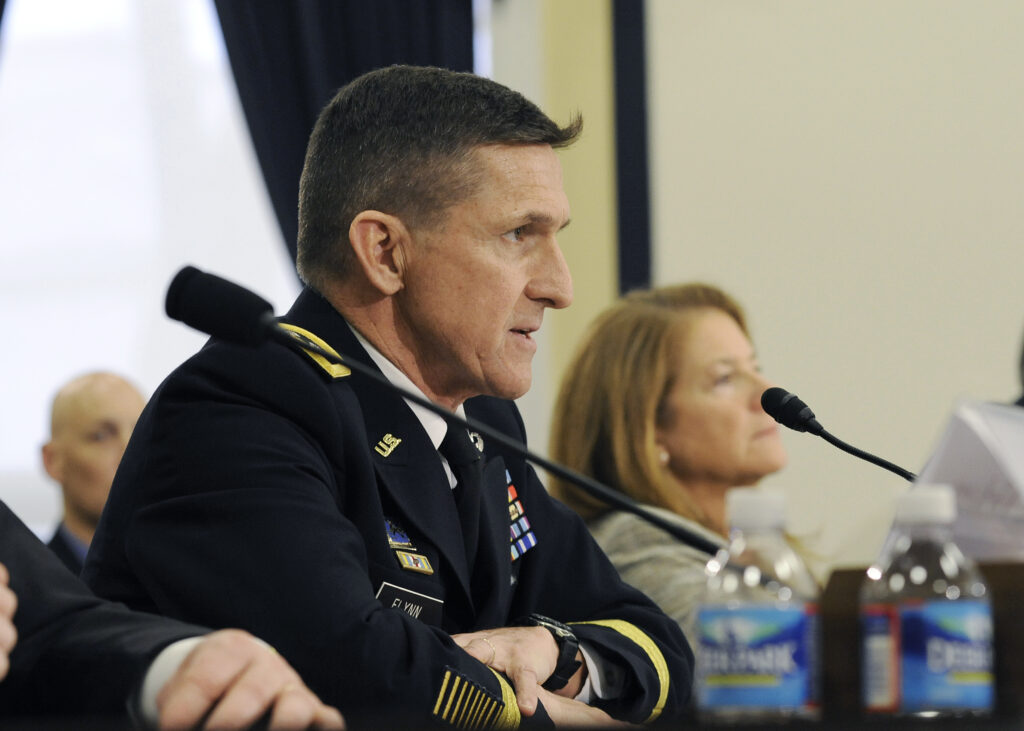
Lt. Gen. Michael Flynn testifies to Congress
Controversy
As Donald Trump’s selection as National Security Adviser, Flynn has been criticized for previously accepting a paid speaking engagement in Moscow from a Russian propaganda organization. He’s also made tweets and public comments that seem to denigrate the entire religion of Islam, rather than the Salafi jihadist strain that seeks to impose its fundamentalist worldview by force. More recently he has gotten into trouble for tweets that passed along “fake news” and conspiracy theories.
America now must act as the judge & jury in the case against HRC & R corrupt system. We R all equal in the voting booth, get out and vote!!!
— General Flynn (@GenFlynn) November 6, 2016
Only time will tell if these reflect a flaw in Flynn’s judgment, or merely the initial missteps of a senior officer who spent decades in the shadows of the intelligence world and is still adjusting to life in the national spotlight at the side of tweeter-in-chief Donald Trump. In our interview, Flynn told me that the trip to Moscow was arranged by his speaking bureau and he sees no problem with it. He has numerous Muslim friends who acted as his interpreters in war zones, he noted, and he understands the threat comes from an extremist minority.
In his recent book The Field of Fight, Flynn wrote of the global terrorist threat that “we’re in a world war, but very few Americans recognize it, and fewer still have any idea how to win it.” Now that he is poised to serve as president-elect Donald Trump’s national security advisor, Flynn’s view of that global threat is likely to translate into a more aggressive campaign against the networks of Islamist extremists groups with ISIS and Al Qaeda at their center.

Xi Jinping and Vladimir Putin sign $400 billion gas deal
Almost to a man, Flynn and the other generals in Trump’s constellation believe President Obama made a mistake in pulling all US troops out of Iraq in 2011. They are likely to advocate for a sustained US troop presence in Iraq even after ISIS loses territory, and in Afghanistan where the Taliban and Al Qaeda have made a recent comeback. Like Mattis, Flynn said he would not support a return to “enhanced interrogation techniques” such as waterboarding — except possibly in extreme cases where the nation was threatened by an imminent terrorist attack involving weapons of mass destruction.
Flynn supports a closer US alignment with strongmen such as Egypt’s Abdel Fattah el-Sisi and Russia’s Vladmir Putin in the fight against Islamist extremist groups. He also believes the rules of engagement for US forces fighting ISIS should be relaxed.
“Not long ago US pilots spotted an ISIS convoy of some 120 vehicles leaving Mosul, but they weren’t allowed to destroy it because of the potential for ‘collateral damage’ to civilians,” said Flynn. (The haunting question is how much “collateral damage” the terrorists lived to do to local civilians after their escape). “Well, this is war, and there’s always a potential for collateral damage in war. You either have to accept that and try and win it, or engage in an endless war. So I’m definitely tired of some of these constraints.”
Read more tomorrow as we profile Gen. (ret.) John Kelly, tapped as Secretary of Homeland Security. Click back to our profile of Jim Mattis or read the introduction about what Trump’s generals have in common as a group.
No service can fight on its own: JADC2 demands move from self-sufficiency to interdependency
Making all-domain operations a warfighting capability means integrating, fusing, and disseminating a sensor picture appropriate for a particular theater segment, not all of them, says the Mitchell Institute’s David Deptula.



